Use these natural home remedies to help ease Swimmer’s Ear symptoms and learn how to prevent it! Calls for simple items you already have on hand in the kitchen. Remember to use our homemade sunscreen to help prevent a sunburn, and our DIY After Sun Spray to help cool and soothe your skin after a day in the sun!
Ah …summer!
Long hot days spent cooling off in the pool or at the beach, sipping refreshing drinks and smoothies, while relaxing under an umbrella. Enjoying good times with friends and family! What could be better?
Unfortunately, spending hours in the pool, on the lake, or at the beach doesn’t come without sometimes uncomfortable consequences. Sometimes it’s a sunburn (which you can make your own natural sunscreen to prevent and then use some after sun spray), or it’s too many mosquito bites (which you can make citronella candles to chase the bugs away)…
BUT what I’m talking about is the dreaded…
Swimmer’s Ear.
Swimmer’s ear is an earache usually caused by an infection of the outer ear canal after swimming. The good news is that this is typically not a serious issue, and home remedies can help to ease symptoms and get you back out into the water in no time!
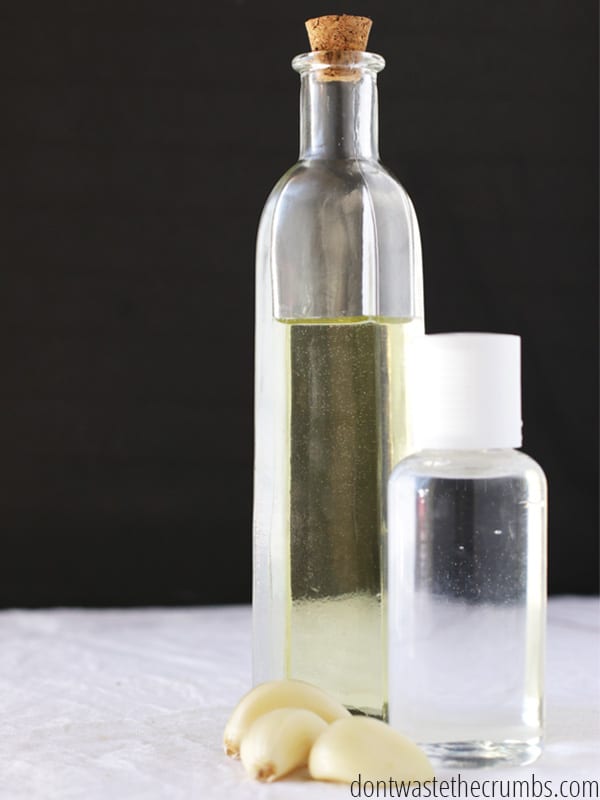
Ways to Help Heal Swimmer’s Ear Naturally
While it is important that you seek medical advice when you first notice pain, tenderness, or itching in the ear, several home remedies can help lessen the symptoms and speed along the healing process, including:
- Warm Garlic Olive Oil Drops – Soak a few pieces of grated garlic in a bowl of olive oil overnight. The next morning, strain the pieces of garlic and then warm the oil. Use a dropper to add 2-3 drops of the warm oil to the affected ear.
- Warm Compresses – Use a heating pad (on a low setting) or a hot water bottle (wrapped in a towel) to place on your ear.
- Hair Dryer – Use a hairdryer on the lowest setting to blow the ears dry, getting any remaining water out of the ears.
- Vinegar and Alcohol Drops – Add 1 drop white vinegar and 1 drop rubbing alcohol to the affected ear, and allow to sit for five minutes. Let the solution drain.

Is Swimmer’s Ear Painful?
Yes. Earaches can be uncomfortable for anybody, but very often for children. The tips listed above should help to ease the symptoms of pain very quickly though.
How long after swimming can you get swimmer’s ear?
The external ear infection can appear within a day or two of swimming.

Prevention is Always the Best Remedy for Swimmer’s Ear
To dry your ears after swimming, my childhood swim teacher once told my mother that we could drop 1-2 drops of rubbing alcohol into the ears. Then, hold the drops in place with a cotton ball for about 5 minutes. Doing this would help to prevent swimmer’s ear!
My entire life, I have repeated this after-swim ritual and I do so now with my own children. I have never had a swimmer’s ear infection (outer ear infection).
That’s all it takes. Just a couple of drops of rubbing alcohol in each ear after a day at the pool, lake, or beach.
The best way to treat swimmer’s ear is to prevent it from happening. But if you or your kiddos get it (external otitis) this summer, you’ll be armed with some practical steps toward feeling better fast – using the items you already have in your home!
Will Swimmer’s Ear Go Away By Itself?
The short answer, probably not. You want to be sure to take steps to either prevent it in the first place or use the natural healing modalities, along with medical advice, should it happen.
More Natural Remedies
- DIY Shaving Cream
- Homemade Sunscreen
- DIY After Sun Spray
- 45+ Ways to Use Bentonite Clay
- DIY Tooth Whitening Powder
- Our Secret to Healthy Gums and Teeth
- DIY Nasal Saline Solution


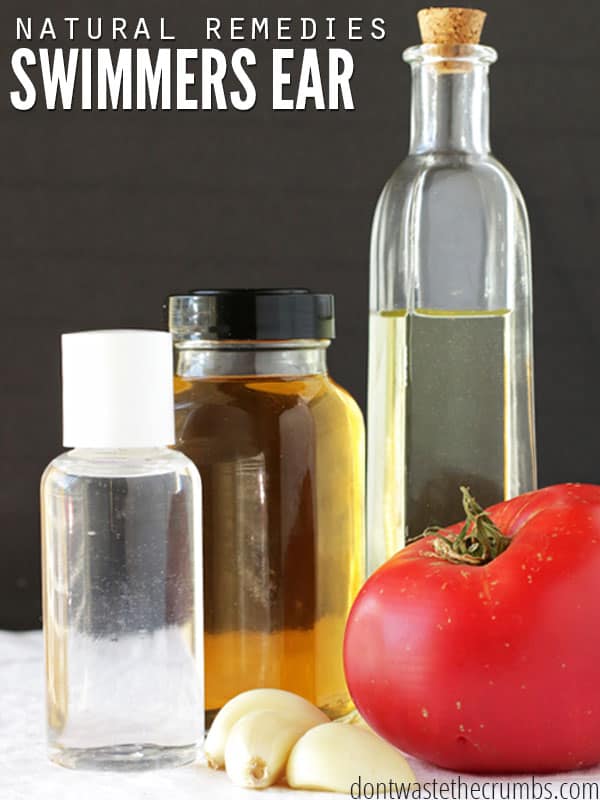
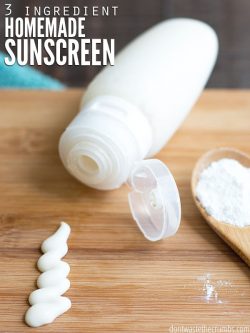
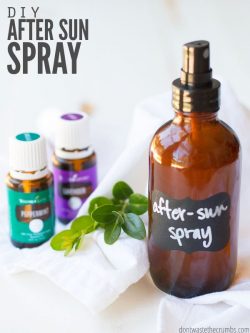
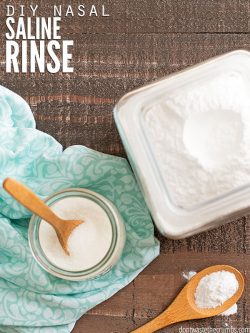
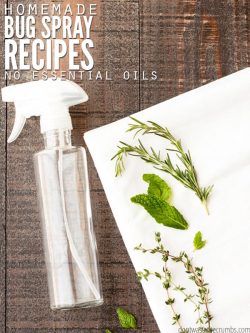

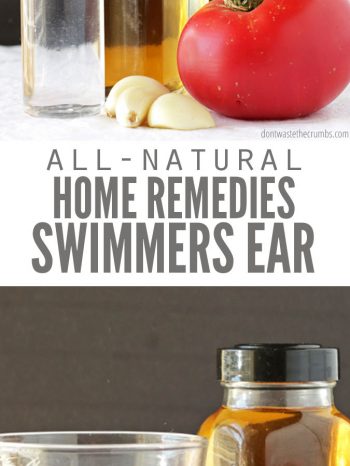
Swimmer’s ear can be prevented by any substance that breaks the surface tension of the eater trapped in the ear, rubbing alcohol, oil, or soapy water will do the trick.
My understanding is, the chlorine in pools makes the water quite alkaline, this makes the hair shaft open, which releases natural oils, and, left in that state, hair is quite frizzy/dry; rinsing with an acidic substance (I use 1/4 cup ACV, added to 10-14 oz warm water) helps to close the hair shaft, preventing further oil loss, and making hair smoother/softer. Of course, wetting hair thoroughly BEFORE swimming is key to minimizing how much chlorine your hair soaks up.
I was also told by another swimmer at the pool we visit, that she brings coconut water to pour on her hair after her post-swim shampooing/rinsing. There shouldn’t be any need to rinse the coconut water out.
For neutralizing chlorine smell in bathing suits, I have successfully used dechlorinating drops (for treating aquarium water), or even cheaper, a small splash of white vinegar in a bucket of water. I have contemplated bringing a small bottle of vinegar water to treat the skin, so our bodies don’t stink of “pool”.
Very helpful post, especially in the summer! I will definitely reference this post if and when it becomes relevant. Thanks for the advice!
You’re most welcome!
Is there anything that can save a faded swimsuit ? To help restore the original color?